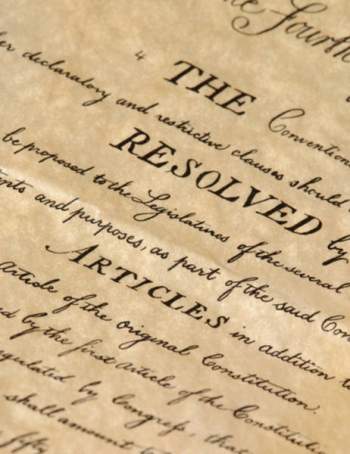
Ratification of Sixteenth Amendment

Throughout the history of the United States, many citizens have protested the legality or constitutionality of income taxes. There are those that question the legality of the government taking a percentage of money earned from citizens and some people equate income tax with slavery. Income tax became legal in the United States when the sixteenth amendment was ratified. The legality of income taxes was first challenged in Pollock v. Farmers' Loan and Trust.
That case limited congresses ability to impose direct taxes on individuals. According to the Constitution, all direct tax burdens are legally required to be distributed according to population. Prior to the Pollock case, tax rates were changed frequently and sometimes based on current events. For example, income tax rates were increased to provide funds for the Civil War. Income taxes were considered to be indirect taxes and could be easily changed. However, the Pollock case declared that income taxes were in fact a direct tax and unconstitutional.
The Sixteenth Amendment allows Congress to collect taxes on income from any source, on all people in the United States. The Amendment was ratified due to the case of Pollock v. Farmers' Loan and Trust. That case declared a uniform income tax unconstitutional. By ratifying the Sixteenth Amendment, congress altered the constitution to legalize a uniform income tax. Information within the sixteenth amendment, made it clear that all income, no matter how it was acquired, was subject to a federal income tax.
Information on the Pollock case was utilized by congress to be sure that the ratified amendment was written in such a way that they would be able to alter the percentage and manner of which income taxes were determined. The Pollock case prompted congress to immediately add the legality of income tax to the Constitution.
Information from the case suggested that income taxes were not legal according the constitution and in order to change the Constitution, Congress had to ratify an Amendment. Therefore, Congress ratified the Sixteenth Amendment, which granted the legality of income taxes to the United States Constitution.
In 1909, there was a congressional resolution on the Sixteenth amendment which proposed income taxes. Information within the Amendment allowed income tax no matter what the source of income was. In other words, any money acquired, no matter in what manner, was now subject to income tax.
The new Amendment overruled Pollock and legalized all forms of income tax. Information provided about the case, suggest that Congress acted immediately on the decision made in that case, as to avoid further disputes regarding the legality of income tax. The Sixteenth Amendment is frequently sited in cases which dispute the legality of income tax.
NEXT: The Different Types of Income Tax



















